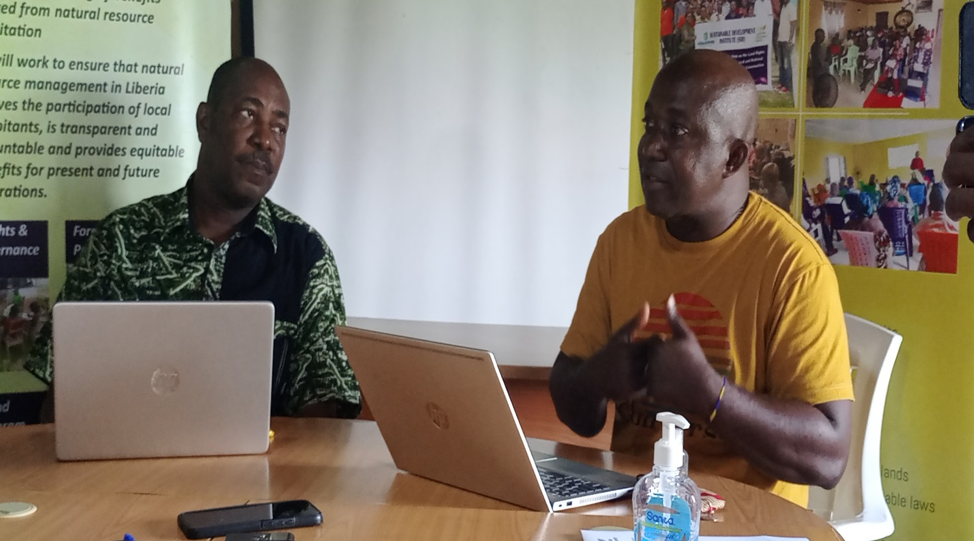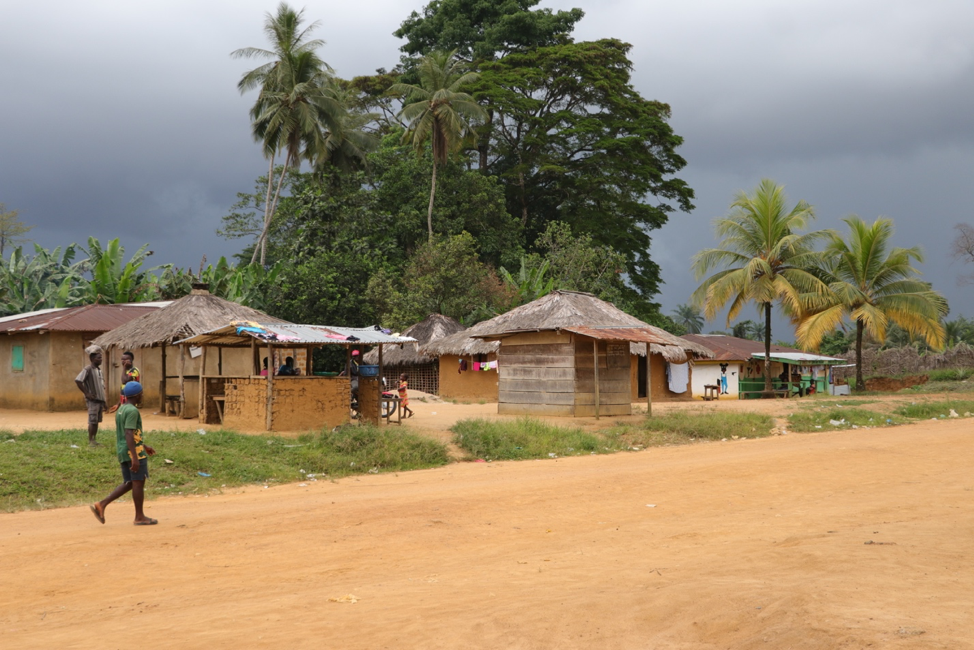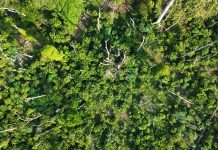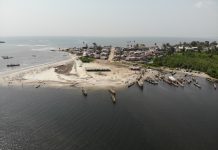Banner Image: Butaw, Sinoe County. The DayLight/Harry Browne
By Varney Kamara
MONROVIA – Golden Veroleum Liberia has failed to implement more than 50 percent of the memoranda of understanding (MoUs) it signed with communities in Sinoe County, according to a new report by Sustainable Development Institute (SDI) and its Dutch partner Friends of the Earth Netherlands.
In 2014, GVL signed MoU with Tartweh-Drapoh, Numopoh, and Nitrian, promising to provide the communities jobs, education, training and social development. Despite giving out more than 15,000 hectares of their land in exchange for these social benefits, GVL has failed to fulfill its part of the agreement, the report said.
“GVL has failed to provide benefits for communities. It has structurally failed to provide benefits and live up to commitments to communities since 2014,” said James Otto, the coordinator of SDI’s community rights and corporate governance program at a news conference on Thursday in Duarzon, Margibi County. “GVL operation in Liberia has not been anything but sustainable. It has failed to comply with findings from complaints from affected communities.
“The lack of compliance has also contributed to human rights abuses in the country.”
Alphonso Kofi, GVL’s spokesman, told this reporter the company would respond to the report soon.
Out of 181 promises Golden Veroleum made to communities within the MoUs, the report said the company has only implemented 49 of those commitments. It broke 90 of them and has partially fulfilled 35. SDI and Friends of the Earth said they could not tell what happened with seven of the promises.
Some of the unfulfilled promises include jobs and communities’ out-growers programs, the most violated portion of all the MoU it signed with Tartweh-Drapoh, Numopoh and Nitrian.
“We’ll continue to press on the national government to ensure that communities get their just benefits from their natural resources but the government must do its part,” Otto said. “We are asking the government to do so because GVL is shifting the blame on the government.” He disclosed SDI is going to present the new findings to the legislature which has a constitutional obligation to approve and review concessions in the country.

Previous reports have found GVL liable for violating MoUs it reached with communities.
Between 2015 and 2017, GVL signed MoUs with Butaw, Tartweh and Tarjuowon for over 28,000 hectares of land, 2,600 hectares in Butaw, 7,000 Tartweh and 19,000 hectares in Tarjuowon. The MoUs mandate GVL to employ one person per six hectares. That has never been done. In Butaw, for instance, it has hired less than half of the number of residents it agreed to employ.
In April 2017, a report by the Roundtable on Sustainable Palm Oil (RSPO)—the global watchdog for the oil palm sector—found GVL violated 16 MoUs it signed with communities between 2013 and 2015.
GVL’s concession mandates it to follow the RSPO’s principles. It is a member of the global certification scheme through its parent company Golden Agri Resources (GAR), the world’s second-largest palm oil multinational. The RSPO reprimanded the company for land-grab a year after that report and ordered it to negotiate with the communities on employment opportunities and other issues. GVL would pull out of the RSPO only to reenter shortly after.
Even more recently, an investigation by the High Carbon Stock Approach (HCSA) last year found the company cleared carbon-rich forests in the Liberian southeast. In 2016, oil palm companies agreed to comply with the HCSA’s “no deforestation” standard.
Danielle van Oijen, a lead campaigner at Friends of the Earth Netherlands, called on financiers of GVL’s parent company GAR to stop their investment in the firm.
“This has to stop,” van Oijen said in a press statement. “Benefits from natural resources should go to the Liberian people, not to shareholders in faraway countries.”
GVL is currently renegotiating MoUs with communities to expand its plantation. it signed a 65-year concession agreement with the Liberian government in 2010, leasing 220,000 hectares of land in Grand Kru, Maryland, River Cess, River Gee and Sinoe, the largest palm oil concession in the country.





Facebook Comments